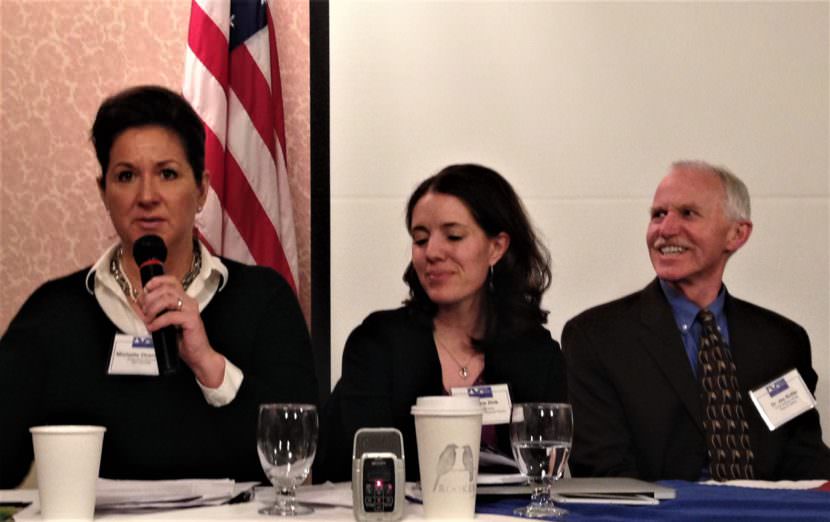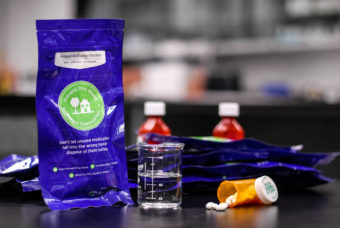
Alaska has another tool in the fight against opioids.
Public health officials are distributing thousands of disposal bags that chemically react to and leave no trace of the drugs.
The bags are sealable pouches containing active carbon. You add drugs and water, seal and shake it, and wait for 30 seconds. The carbon neutralizes the drugs, so they have no effect. The biodegradable bags can be thrown out with the trash.
Michelle Overstreet is executive director of My House, a Wasilla-based organization that helps homeless teenagers. She told those at an Alaska Municipal League meeting in Juneau that it’s important to dispose of drugs safely at any time, not just official drop-off days.
“We’ve had parents coming in to get those, we’ve had grandparents coming in to get those,” she said. “People are excited about having a way to get rid of those that isn’t throwing them in the garbage or down their septic system, which then can leach into their well.”

Mallinckrodt Pharmaceuticals, which makes opioid pain-killers, is contributing 25,000 disposal bags to the state.
Alaska Chief Medical Officer Dr. Jay Butler said his agency is sending 1,000 bags to its clinics.
“I recognize that some of our public health centers don’t have full-time staffing anymore. But that is one of the ways we want to get these into the communities. Or if we can provide some directly to you, we’d be happy to do that also,” he told municipal leaders at the forum.
Public health official Andy Jones said distribution began a few weeks ago.
They’re going to hospitals, recovery centers, homeless shelters, tribal governments and others who can get them to all parts of Alaska.
“There’s a lot of communities that don’t have public health centers,” Jones said. “So we’ll also be looking at the clinics and community health aides.”
“We do have a lot of itinerant nurses within public health nursing that travel go out to the communities quite often,” he said. “So they’re going to be equipped with these pouches and they can hand these out as they travel across the state.”
Jones said the bags are an easy way to dispose of unused prescription painkillers, which are frequently stolen or sold to addicts.
“The targeted audience may not be the individual who’s using, especially,” he said. “More or less, (it’s) the individual who’s coming into recovery.
“When you go into those recovery centers or those homes, they can’t be carrying pills or prescriptions,” Jones said. “These bags give them that way to dispose of those medications in the right manner.”
Gov. Bill Walker recently declared the opioid epidemic a state emergency. Other efforts include distributing 5,000 naloxone kits, which can stop opioid overdoses.
